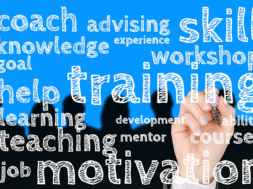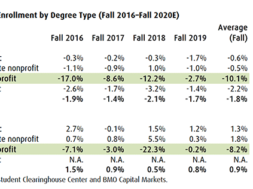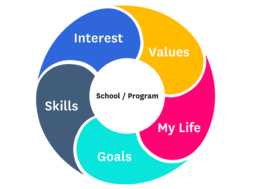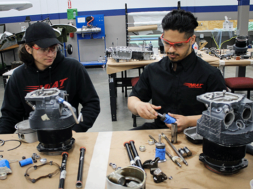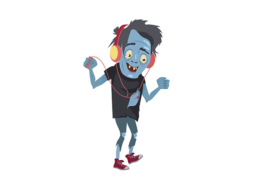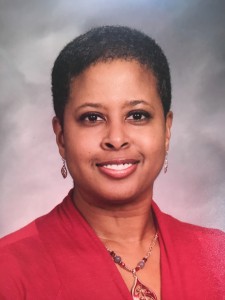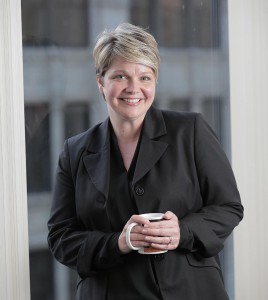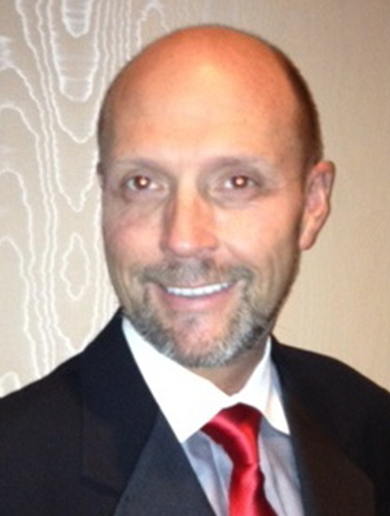
Reclaiming the High School Market – What Professional School Counselors Want you to Know
By Carla Cheatham, Professional School Counselor, Bremen High School; Shannon Gormley, Student Success Coordinator, Tinley Park High School and Vincent Norton, Managing Partner, Norton Norris, Inc.
The art of career and college planning at the high school level is a robust and time intensive endeavor even on a good day. Now throw in a pandemic that has high school seniors and their parents reeling and you get a glimpse into the life of a professional school counselor.
As students turn to their counselors for guidance, will they continue on the path they chose pre-pandemic? Or will they now consider options closer to home? And if they change their plans, how can career colleges be one of the options?
College and career planning
It is important to begin with an understanding of the elements that go into college and career planning for school counselors. The Association for School Counselors (ASCA) has created a national model that states school counselors are responsible for working with students in academic, social/emotional and college and career domains (ASCA, 2019; Mallott, Havlik, Gosai, & Steen, 2019). At the high school level, counselors are focused on ensuring each student has an opportunity to explore and determine post-secondary options that will work best for them.
While each school is different, the Every Student Succeeds Act (ESSA) requires states to create various benchmarks that will indicate the college and career readiness of each student.
Contrary to popular belief, this process begins prior to a student’s junior year in high school and is interwoven throughout a number of lessons, activities, and meetings. Much of these discussions include, not only the student and counselor, but also the parent and/or guardian. In some cases, college and career discussions begin at the elementary level and persist for the duration of the student’s education.
In Illinois, all sophomore students must identify a career area of interest by the end of their sophomore year. Starting in 2020-2021, Illinois will be the third state to require graduating high school seniors to complete the Free Application for Federal Student Aid (FAFSA) (Gaines, L.V. 2019). However, COVID-19 has challenged school counselors to become more creative as they service students.
There are a number of platforms school counselors utilize when it comes to preparing students for their post-secondary options. Some of these include technology platforms such as Naviance and Nearpod. It’s interesting to note that many career colleges are not included as options in some of the widely used college/career planning tools. This is definitely an opportunity for the career college sector to be viewed as a viable choice.
Additionally, counselors have used traditional methods to engage their students through developmental guidance lessons in classrooms, individual meetings with the student, and informational parent nights to help all stakeholders understand the expectation and resources available. Ultimately, professional school counselors are accountable for producing well-informed students who have a clear path on their next step after high school.
The fact is, school counselors do not have as much time as they would like to work with students on college and career research. This is a big opportunity to partner more effectively with career colleges. Consider making it as easy as possible to find all the information needed to make an informed decision readily available. This includes current tuition and fees, financial aid and scholarship information and how to apply to the school (versus a lead capture form). Accessibility to this information is going to be more relevant as communication between students, parents, school counselors and admission professionals becomes more virtual.
Changes as a result of COVID-19
The extensiveness of college and career planning is impressive and yet the plans many high school seniors made are now in flux with the onset of COVID-19. The reality of remote learning brought difficult changes and challenges for school counselors and students alike. In some cases, counselors struggled to rapidly learn technology themselves in order to engage their students.
For some school counselors, using technological tools such as Google Classroom, Google Meet, Naviance, College Board’s Big Future, Nearpod, and Xello were already incorporated into their in-school presentations and meetings. Most of the above-mentioned platforms allowed students to work on college and career readiness activities from home. However, the pandemic revealed the truth of the inequity, inequality and the digital divide in the United States. School districts have had to quickly address issues of students not having internet access, slow connections or broken computers. But this is just the technology side of the equation.
Many students are also struggling with access to food, loss of jobs, increased need to be the primary income and/or primary caregiver, lack of transportation issues and a higher risk of some populations to contract and/or die from COVID-19.
Now add to this a college plan that is in flux. For some, plans have changed from attending classes on campus, to either fully online or a hybrid approach to learning. The uncertainty can be difficult for anyone to process, but a high school senior or graduate has the additional burdens mentioned earlier. This situation makes it exceptionally important for school personnel to be accommodating, creative, and understanding with all that students must endure during this time and into the future.
Mental health and wellness
The shutdown of schools due to COVID-19 was overwhelming for students, families and educators. Counselors have seen a rise in mental health issues with students in recent years, pre-pandemic. More students are reaching out for help with anxiety, stress, substance abuse issues, and depression. The connection between a student and a trusted adult can be critical in helping students to manage and address these issues in school. During remote learning, this was especially concerning for counselors as many students were disengaged and had a difficult time navigating eLearning. Given the pandemic, it is apparent that more social emotional learning will be necessary to support students.
In fact, academics classes and social emotional wellness were moved to the forefront of concerns, sometimes placing career readiness as the least addressed of the three domains. But some schools did attempt to place emphasis on career needs. One thing that was done to highlight career information was “career of the day” at the beginning of the pandemic. Some school counselors created a virtual office for students to sign up and remotely meet with them.
Colleges and universities also became creative in working with high school students. Some colleges and universities increased their ability to remotely reach students via virtual tours and meet and greet events offering live question and answer sessions regarding their academic institution. One thing is certain, when it comes to students and their families, clear and varied communication is even more critical now than it ever has been.
Perceptions of career colleges
Career colleges definitely are poised for growth and are a great option for some students however, there are negative perceptions of career colleges amongst high school counseling professionals. Some of this is a result of media stories and the numerous school closings that have occurred at a record pace.
These negative perceptions are perpetuated by politicians – especially in an election year. In fact, this is the seventh consecutive year that Senator Dick Durbin has gone directly to counselors and teachers at the high school level to warn them about for-profit schools and colleges. Elizabeth Warren and Durbin even voted against career colleges getting any of the funding from the stimulus package.
On the flip side, the pandemic has created opportunities for career colleges. They are already experienced in offering online education and offering education for shorter periods of time in comparison to four-year colleges and universities.
Therefore, it is important for career colleges to address the needs of potential students and address perceptions that surround career colleges and for-profit schools.
As high school counselors, there is a responsibility to advocate for all students. In particular, it is essential to address systemic barriers that may impede the postsecondary options for students (Toporek, Daniels, 2018). The issue of addressing systemic barriers goes back to the perception of career colleges, which may vary from counselor to counselor. However, the issue of concern has made its way to research and other forms of literature. An example is an article from The Atlantic which highlighted a 10-year longitudinal study of Black youth from a low-socioeconomic area in Baltimore, MD. The article stated, “Increasingly, for-profit schools have come under scrutiny from regulators and critics for leaving students – disproportionately black and Latino young adults – with heavy debts, poor graduation rates, and weak job prospects (Anderson, 2016).”
The issue of who utilizes career colleges most frequently is important. Before the pandemic, the employment numbers in the Black and Latinx community lagged behind Whites. During the pandemic, not only are Black and Latinx communities dealing with larger unemployment numbers than Whites, but they are also dealing with an overwhelming number of COVID-19 cases. The discrepancy needs to be recognized and addressed by all institutions of learning, including career colleges. It can also be an opportunity for career colleges to write a different narrative when it comes to addressing systemic and institutional discrimination, inequity and inequality. Recently, there have been many schools adding statements of support to their website. It is an opportunity for career colleges to put their statements into action by displaying transparency and authenticity by addressing the needs of students and their communities.
Tips to reach and engage students and their parents
Beyond the importance of building trust and meaningful relationships with high school counseling professionals, there must be an outreach to engage prospective students and their parents. The strategy is a mix of brand building/recovery along with providing information on career college options through varied sources.
For the counselors, it begins with thinking like a partner and stepping back and saying: “What can I do to help these high school guidance professionals? What do we have access to that we can share? What are we good at?” This will allow you to frame the conversation and the “offer” per se from the professional counselor point of view. It’s not just about getting access to the high school juniors and seniors. It’s about being a good partner. To build real trust, you’ll want to figure out a way to engage and build value over time starting with each freshmen class. This approach won’t bring in an immediate return on investment, but you’ll be building solid relationships right now that will pay dividends later.
Meanwhile, if you want to make the most of the current situation, consider purchasing a list of 2019 and 2020 high school graduates in your area.
There will be a number of students who were in a traditional college this year who won’t be going back. You can try email but it’s not likely this group is going to open up your message. Instead, you can break through the clutter with informational direct mail. This improves the odds that their parents will see the information, too. And don’t be afraid to be too detailed and share options. This is exactly the message they need right now.
Another idea is to create a newsletter or promotional piece that provides meaningful information that isn’t at the counselor’s fingertips. This can become a tool for them to share at their college and career planning events. Your piece can include career opportunities, salary data and employment projections from trusted and reliable sources like O*NET Online. And don’t just make it about the programs you offer at your school. Think educational material that is useful to anyone making decisions about college and career fields. And while we’re at it, how about a piece for parents of college bound students. This can include checklists, scholarship information, frequently asked questions and more.
Finally, if you want to reach the high school grads and recent grads directly, you need to use the media they use. For TV right now it’s all about connected TV. So, think Connected TV like Roku, Apple TV, Amazon Prime, smart TV’s. With all these platforms you can target by zip code, and by age and sex. The same thing with digital radio, you can use iHeart, Pandora or Spotify to get your message in front of select audiences.
Conclusion
By now, you’ve probably realized that career colleges are a viable option for many high school students, especially with COVID-19 changing college plans. Additionally, partnering with your colleagues at the high school level is a good idea; but where do we start?
It is unfortunate the negative press and policy leveled against career colleges in recent years. As a group, it is important to acknowledge what has happened in the past for those events to occur. However, it is equally important that those schools and colleges are proactive in addressing the past and publicizing a plan to move forward that demonstrates the commitment to ensuring the past does not repeat itself.
Career colleges and schools have long been innovators in offering education in a different way and serving those who a traditional model won’t work.
The relationship between career school admission professionals and school counselors can often feel strained, but it is important to know that school counselors want the best post-secondary fit for their students. It is important for students to complete whatever post-secondary option they choose with a minimum amount of debt and a degree or certification that allows them to live the life that is suited to them.
It’s important to remember that professional school counselors work with these students and their parents for four years. They see each other in the community, too and have guided students through thick and thin, through the ugly and the great; and now with the COVID-19 response. Your life has become more difficult and so has theirs. There is a great opportunity as a career college sector, as the innovators, to actually work more closely and to really help those students make a smoother transition, whatever their path may be.
References
American School Counselor Association (2019). ASCA National Model: A framework for school counseling programs (4th ed.). Alexandria, VA: American School Counselor Association
Anderson, M.D. (2016). When for-profit colleges pray on unsuspecting students. Retrieved from https://www.theatlantic.com/education/archive/2016/10/when-for-profit-colleges-prey-on-unsuspecting-students/505034/.
Darrow, A. (2016). The Every Student Succeeds Act (ESSA). General Music Today. 30, 41-44. doi: 10.1177/1048371316658327
Gaines, L.V. (2019). New law will require Illinois students to apply for financial aid. Willradio.tv.online. Retrieved from https://will.illinois.edu/news/story/new-law-will-require-illinois-students-to-apply-for-financial-aid.
Malott, K.M., Havlik, S., Gosai, S., Davila, J.D., & Steen, S. (2019). College readiness and first-generation college goers: Group impacts with students from an urban, predominantly, African-American population. Journal of Child and Adolescent Counseling, 5, 256-274, DOI: https://doi.org/10.1080/23727810.2019.1672241
Toporek, R.L., Daniels (2018). American Counseling Association advocacy competencies. Retrieved from https://www.counseling.org/docs/default-source/competencies/aca-2018-advocacy-competencies.pdf?sfvrsn=1dca552c_6
CARLA CHEATHAM has worked as a high school counselor for nearly 25 years. Carla is a licensed clinical professional counselor (LCPC) and a national certified counselor. Carla earned the Global Career Development Facilitator credential through the Center for Credentialing & Education (CCE). She has also earned the certified school career development advisor credential through the National Career Development Association (NCDA). Carla is the 2020-2021president of the Illinois Association for Multicultural Counseling. She is also an executive board member for the Association for the Advancement of the College Admissions Profession.
Carla received a B.S. in Journalism from Southern Illinois University at Carbondale and a M.Ed. in School Counseling from Georgia State University. In addition, she received her Ed.M. in Global Studies in Education from the University of Illinois Urbana Champaign. Carla is also a doctoral student in the Counselor Education and Supervision program at Governors State University.
Contact Information: Carla Cheatham // Professional School Counselor // Bremen High School
SHANNON GORMLEY is a licensed school counselor, who has one of the most unique combinations of experiences because she is a high school professional counselor, but a higher-ed admissions representative who has worked in both profit and nonprofit institutions. In her 20 plus years or so, she’s been an advisor, a DOA, a student activities director, Executive Director of Graduate Recruitment.
She’s also worked in training and helping people who work in the admissions profession across the United States and Puerto Rico, helping them with ethical and effective ways of recruiting and advising students. After earning her masters in school counseling, Shannon worked in secondary education as a school counselor, helping students, not just at the academic side, but also the social aspects in terms of their career pursuit, and the focus on the college and career readiness. Shannon also serves as the Executive Director of the Association for the Advancement of the College Admissions Profession.
Contact Information: Shannon Gormley // Student Success Coordinator // Tinley Park High School
VINCE NORTON is a multiple award-winning marketing executive who has led thousands of schools and colleges to success through unique strategies geared towards targeting key populations and engaging them to respond. As a managing partner of Norton Norris, he oversees all digital and traditional marketing as well as mystery shopping and benchmarking services.
Prior to starting Norton Norris, Vince served in the capacity as the vice president of enrollment management at colleges in the Midwest as well as out East. Vince holds an MBA from Cardinal Stritch University and with nearly 35 years in higher education, marketing, and admissions, he is a respected contributor and presenter on the Career College Circuit.
.
Contact Information: Vincent Norton // Managing Partner // Norton Norris, Inc. // 312-218-3991 // Vince@nortonnorris.com // https://nortonnorris.com/

